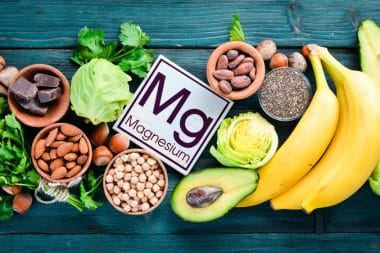Our immune systems take a hit every single day. There are countless bugs, germs and viruses flying around at any one time and that means your immune system needs to be strong and effective, to help you avoid becoming sick.
Of course, we all assume that if we’re stick, we can simply go to the doctor and if we have an infection or something which requires treatment, we’ll normally be given antibiotics and that will sort out the issue. Well yes, it will, but it may also do a lot of other damage too.
You see, when you take antibiotics, they basically wipe out all bacteria in your gut, the good stuff included. It can take months for your microbiome, e.g. the healthy balance of bacteria in your stomach, to return to normal.As a result, it’s really only a good idea to take antibiotics when your doctor prescribes them, and not to go for them every single time you’re ill with something or another.
Wait, we have good and bad bacteria?
Yes, we do!
Your body is a huge breeding ground for microorganisms, including yeasts, viruses, and bacteria. You also have around 1000 different types of gut bacteria in your intestines. Now, you might panic at that, because the words ‘bacteria’, ‘germs’, and ‘virus’ aren’t exactly associated with anything good, but in this case they are. You need a healthy balance between good and bad bacteria to keep everything on an even keel.
If the bad bacteria outnumbers the good, that’s when you’re likely to get sick. As a result, we need to look after the good stuff and one way to do that is by taking probiotics.
What Are Probiotics?
Probiotics are good bacteria which are found in a whole host of different foods and beverages. By adding more probiotics to your diet, either through the foods and drinks you consume or via a supplement, you’re boosting your gut health from the get-go.
Studies have shown that by taking probiotics, you can obtain a huge range of possible benefits, not least in your immune system.
A huge 70% of your entire immune system is found in the gut, or the intestines as they’re better known. The food you consume makes its way into the intestines and then it’s all broken down, the nutrition is separated from the rest and absorbed through the wall of the intestines and taken around the body to do the good work it needs to do.
Now, because your gut is so important, the wall of your intestines are lined with what we’ll call ‘warrior cells’. These are guards which only allow the good stuff to be absorbed. These warrior cells are also known, more scientifically, are your gut microbiome. By disrupting this microbiome, you’re basically allowing anything which isn’t good to be absorbed into your bloodstream and therefore increasing the chances of illness. You’re also increasing the chances of inflammation, which will therefore affect your immune system. Of course, inflammation is a response from the immune system; when you’re ill or injured, your inflammatory markers go up, to try and protect your body against whatever injury or illness you’ve sustained. When you’re not ill or injured, this type of inflammation can actually turn against you and become damaging. So, when your microbiome isn’t in great shape, your level of inflammation is also naturally higher.
Probiotics are able to help these key warrior cells by giving you more of the good bacteria versus the bad. This helps to strengthen the gut wall and can help to reduce inflammation too. Put simply, taking regular probiotics helps you to achieve a healthier gut, and that means your immune system is stronger, making you healthier overall.
There are various different probiotics but there are a specific few which are particularly great at immune system strengthening.
- Lactobacillus Rhamnosus (L. rhamnosus)
- Lactobacillus Paracasei (L. paracasei)
- Lactobacillus Acidophilus (L. acidophilus)
When you’re checking out the food labels on the products you’re considering buying, these are the main types of live bacteria you need to be looking for. It’s also important that you ensure that you go for ‘live’ yogurt rather than long-life. This is because the bacteria needs to be alive in order to give you the main benefits. If the bacteria has been subjected to heat treatment or freezing, it’s not going to do its job as effectively, if at all.
Natural Probiotic Sources
To help boost your immune system and therefore make it less likely that you’re going to fall sick with every bug and virus that goes around, you can either look to increase your natural probiotic content, i.e. through your diet, or you can take a supplement. It’s always better to try and do it the natural way, simply because there is little regulation in the supplementation industry, and you can never be sure that what you’re taking really is as high quality as it says it is. However, we’ll cover supplements in a little more detail shortly.
If you want to try and boost your natural probiotic level via foods and drinks, here are a few ingredients to look out for:
-
- Yogurt – This is without a doubt the most common type of probiotic most people will take and it’s also a very effective option to go for. You can easily have yogurt for breakfast or as a snack, and throw in some antioxidant-boosting berries too! Make sure that you go for yogurt with live probiotic cultures, as these will give you more probiotic benefit and therefore boost your immune system more effectively.
- Kefir – You’ll find kefir in most supermarkets these days and it is a milk drink which is fermented. Put simply, kefir is a grain but becomes a useful probiotic when added to milk from a cow or goat. You can buy kefir drinks or you can add it to your morning breakfast too.
- Tempeh – Tempeh is a kind of soy product and it’s very common in Asia. Again, this is a fermented product (you’ll see a pattern forming here) and it tastes quite mushroom-y, if you’ve never tried it before. Tempeh might not be the easiest ingredient to find but if you head to a health store you’ll certainly find it.
- Traditional buttermilk – Make sure you get the traditional variety as the regular stuff really won’t give you much in the way of probiotic benefit. Traditional buttermilk is a fermented dairy product and again, you’ll find mostly in Asian supermarkets, as it is consumed widely across Asia in general.
- Kimchi – If you love Asian dishes, this Korean side will tick your taste list. Again, this is a fermented dish and it’s normally made of cabbage which is seasoned with all manner of different spices to give it a kick. Kimchi is also high in many other vitamins which could overall boost your immune system, as well as general probiotic content.
- Miso – If you’ve never had miso before, you need to try it. This is a Japanese seasoning which is added to many different foods, but you’ll also find it as a soup and a very common serving in Japanese restaurants. You’ll get a fiber and protein kick, as well as plentiful probiotic content.
- Sauerkraut – Sauerkraut is found very commonly across Europe but it’s also rather useful in terms of probiotic content too. This is a shredded cabbage which is also fermented by bacteria from the lactic acid family. This helps to give it its probiotic content and aside from anything else, it’s rather delicious as a side to your favourite lunch or dinner!
- Kombucha – Everyone has heard of kombucha tea and if you’re never tried it, you need to do so if you want to be in fashion and get some extra probiotic content in your life! Kombucha uses yeast and fermentation to give it probiotic effects.
- Pickles – Yes, you can add pickles to your meals and your burgers and grab some probiotic content! The fermentation process is what gives the pickles their benefit, whilst also having natural lactic acid within them.
A Word About Probiotic Supplements
It’s entirely possible to boost your overall health and wellbeing, as well as you immune system, by taking a daily probiotic supplement. However, you need to shop around and make sure that you’re choosing a high quality product. As we mentioned before, the supplement world isn’t governed by any specific guidelines, so always read reviews and testimonials to make sure that you’re choosing a quality option.
Supplements are normally taken once per day, either a capsule, tablet, or a milky drink, however always read the label and adhere to product guidelines. You should also check with your doctor before you take any specific supplement, to ensure that there are no contraindications to use for your specific circumstances. Whilst there are very few known interactions, that doesn’t mean there aren’t any. Further studies are needed to completely wipe out the idea that probiotics are suitable for everyone. Check ahead of time, just to be on the safe side.








Reply